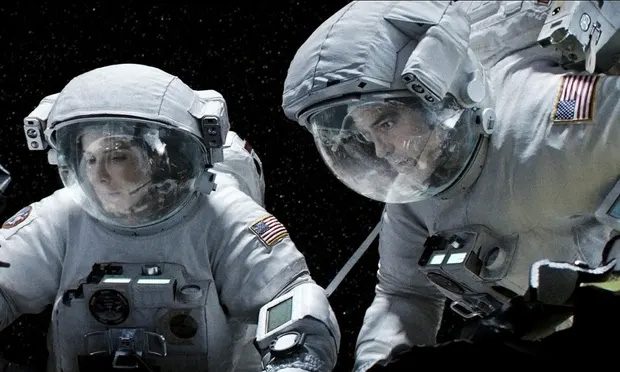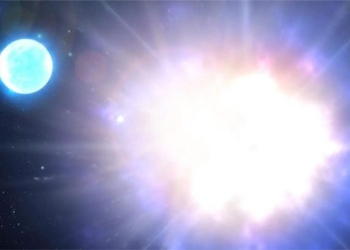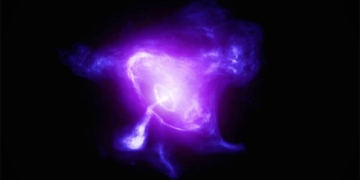Biological processes in a weightless environment occur differently than on Earth, requiring the human body to adapt in new ways. Thus, individuals born during space travel may find it difficult to live normally on Earth.
Russian scientists are striving to understand at the molecular level whether these changes can be reversed and if humans can return to a normal life after long flights in space.
Life in a Weightless State
The main risk factors in space are cosmic radiation and the weightless environment. Due to the orbit of the International Space Station (ISS) coinciding with low Earth orbit, Earth’s magnetic field protects astronauts from radiation. However, scientists have yet to create an artificial gravitational field.

Individuals born during space travel may find it difficult to live normally on Earth. (Illustrative image).
After reaching orbit, many astronauts report headaches, dizziness, nausea, disorientation, and decreased appetite. This is known as Space Adaptation Syndrome (SAS), or space sickness, which typically resolves within a few days. However, they also face issues such as muscle atrophy, bone demineralization, vision impairment, and circulatory disorders in the weightless environment.
Astronauts can lose up to 1.5% of their bone mass each month. Osteoporosis is a persistent condition that astronauts must contend with during long missions in space.
Bone density continues to decrease even after a year of living on the ISS. The muscles that support the intervertebral discs weaken, resulting in astronauts growing an additional 3 to 5 cm in height.
While in orbit, astronauts do not feel these changes. Problems arise after returning to Earth. Gravity compresses the vertebrae, causing pain, and every movement becomes difficult. The longer an astronaut remains in a weightless state, the harder it is for them to return to normal life on Earth.
Astronaut Oleg Kotov, Deputy Director of Science at the Institute of Biomedical Problems (IMBP) of the Russian Academy of Sciences, stated: “Rehabilitation is a lengthy process. The acute phase lasts two weeks, a maximum of three weeks. After 7-10 days, astronauts can live at home and perform normal activities. The time required for recovery, for the body to fully return to its physiological normal state depends on individual characteristics.”
Proteins May Alter Biological Activity
Scientists are still uncertain about what will happen to the human body after several years in space, and whether complete recovery is possible. IMBP scientists are investigating this issue.
At the molecular level, the adaptation process to any external conditions primarily affects the composition of the synthesized proteins.
For about 15 years, scientists at the protein laboratory of IMBP, led by Medical Science Doctor and Professor Irina Larina, have been studying the proteins found in the biological fluids of astronauts, including blood, urine, saliva, and exhaled breath condensate.
Scientists understand how each type of protein can affect the human body, allowing them to identify which processes are impacted. Researchers hope to find molecular targets in the chain of transformations—substances that, when influenced, could help prevent bone loss and muscle mass reduction.
Colonization in Space
In a microgravity environment, genes synthesize similar proteins. However, according to scientists, chemical changes occur afterward, often affecting functions. For example, scientists have observed that in orbit, many proteins exhibit increased oxidation.
Professor Larina explains: “For instance, if before the flight, a protein is oxidized at two points, afterward it may be oxidized at ten points. The molecules are the same, but with different structures, meaning they operate differently.”
The role of proteins is to transmit signals to where they bind to receptor cells. If a protein folds differently, it will not transmit anything, or it will send a different signal.”
In every human raised on Earth, biological processes recover relatively quickly after spaceflight, but scientists still do not know what will happen to those born in space.
Experiments on mice have shown that in space, conception and pregnancy in mammals occur normally. The experiments resulted in healthy offspring.
If left in space, they could give rise to new generations born in a weightless environment. However, they would find it difficult to return to life on Earth.
In a weightless state, blood, like everything else, loses weight. In animals born in space, the heart lacks the necessary myocardial tissues for functioning under gravitational conditions, and blood vessels are very thin.
Therefore, if in the future humans embark on long interplanetary flights and multi-generational families live on space stations, they will be different beings—space humans.
- Daredevil expert puts hand into a hungry sea cucumber tank, what happens next is shocking!
- Strange creature in the Red River, lives for a few hours but is a specialty priced at up to a million dong
- With a capacity of 20,000 tons, and a length of 2.6 km, only over 600 people in China are qualified to drive this train





















































